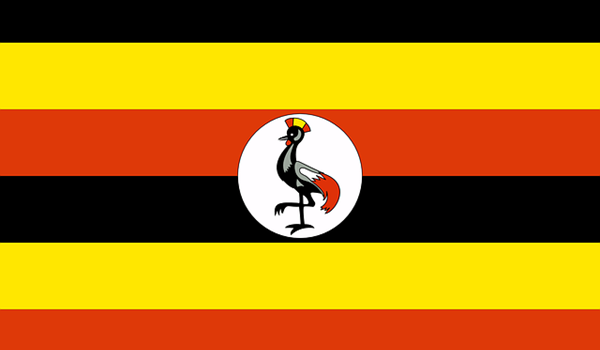Jurisdictions
Regions
Industry Sectors
06/02/23
AFRICA: Uganda charts own path as global tax pact looms.

As published on monitor.co.ug, Sunday 5 February, 2023.
Uganda has vowed to continue on an independent path and avoid a global pact that seeks to apply minimum tax rates on multinational enterprises, thanks to the country having its own development imperatives to consider.
Under the inclusive framework on base erosion and profit shifting (BEPS) negotiated by the Organisation for Economic Cooperation and Development (OECD) alongside the G20, a 15 percent corporate tax rate will be the minimum any of 142 countries participating can levy. The mechanism called Global Anti-Base Erosion (GloBE) will be applicable on firms with revenues above €750m starting this year.
Uganda is not part of the inclusive framework, but it already levies an effective corporate tax rate of 30 percent. The country usually offers lengthy tax holidays in a bid to lure foreign direct investment, and it is such considerations—along with regional factors informing the country’s stance—according to the junior minister for Finance in-charge of Investment, Ms Evelyn Anite.
According to the OECD, countries were expected to adjust their domestic laws to cover the new global tax rate by 2022 ahead of implementation this year. The rules, referred to as pillar-two in global tax jargon, are ostensibly aimed at helping governments address tax challenges arising from digitalisation and globalisation of the economy.
The GloBE rules provide for a coordinated system of taxation intended to ensure large multinational groups pay this minimum level of income tax arising in each of the jurisdictions in which they operate. The rules create a “top-up tax” to be applied on profits in any jurisdiction whenever the effective tax rate, determined on a jurisdictional basis, is below the minimum 15 percent rate.
But underlying skepticism of these rules are issues of sovereignty considering the rate could unilaterally be raised in future, impacting the models of attractiveness for such developing countries as Uganda and their ability to attract investments. For some multinational enterprises, this approach also creates risk of double taxation in some industries.
As of December last year, Kenya and the Democratic Republic of the Congo (DRC) were the only members of the East African Community bloc taking part in the inclusive framework. The two are also members of the Common Markets for East and Southern Africa, where other inclusive framework members Zambia, Djibouti, Seychelles, Egypt, Mauritius and Eswatini also belong.
It is unclear what impact the global frameworks might have on tax structuring in regional economic blocs. While Uganda is not alone in skipping participation in the inclusive framework, it risks isolation in an age of digitalisation and trade in intangibles where global cooperation is needed to attain tax effectiveness.
Ms Anite says it is no cause for worry.
“That shouldn’t be worrying you and that doesn’t worry us as a country. We will make our case,” she said, adding, “We are a developing economy, and as such, we know what we want. And we know what can make us attract investments.”
She proceeded to note thus: “We didn’t have to consult the WTO (World Trade Organisation) to tell them of our decision not to allow our raw materials to be exported without value-addition. And they have not done anything to us. So it is our law, it’s here in Uganda and we practice that. If other countries feel it is okay to export raw materials, it’s okay.”
The ability to extend tax incentives is crucial for Uganda, an economy that is struggling to transform from prevalent agricultural production to agro-processing and manufacturing. A drive from largely export of raw commodities championed by President Museveni and ongoing investments in oil production could quadruple the size of the economy, according to the head of state.
But much of this hinges on how much capital inflows the nation can attract and quick technological transfer from Asia and the West that can be mastered. With the investment portfolio, Ms Anite has a game plan.
“Nobody ties the hands of the other in this business. It’s a levelled playing field. The only reason we go looking for FDI (Foreign Direct Investment) is because we are looking for their technology and we are looking for advanced equipment. technology and access to credit,” Ms Anite said. “And as we keep investing more money in UDB (Uganda Development Bank), in Post Bank and we build our financial muscle, we won’t need to be running after those FDIs.”
She added: “But right now if you look at our comparative advantage with those countries that are developed, clearly we cannot say we want to just look at ourselves as Ugandans and not attract FDI when our money is expensive.”
Ms Anite noted that “in other jurisdictions, money is at two percent, zero percent.” She cited Germany where “money for manufacturing is at zero percent” and juxtaposed it with Uganda where “money for manufacturing is at 23, 16 percent.” The lowest, she added, “the government gives us at UDB is 12 percent” It’s too high, she lamented.
The junior Investment minister is even particular about the countries she is looking to for FDI. “China gives her citizens at three percent. Now that is what we are looking for. We want them to bring their money and invest in our country,” she declared.
By the end of the last quarter of 2022, which is the latest reporting period by the central bank on FDI inflows, Uganda had attracted as much as $475m in foreign direct inflows, a 35 percent rise from the previous quarter.



